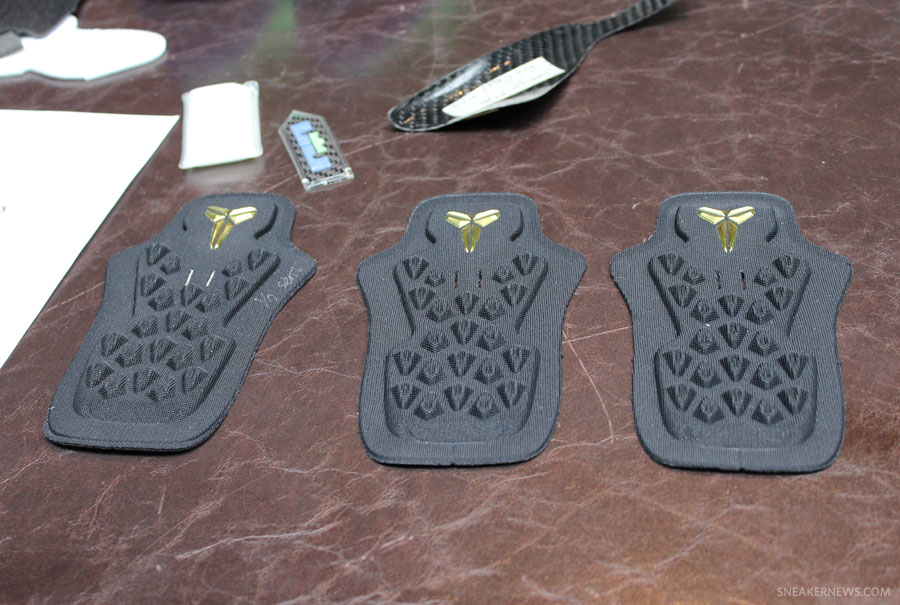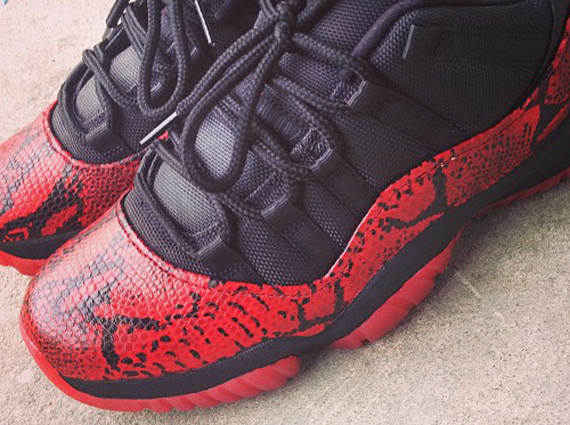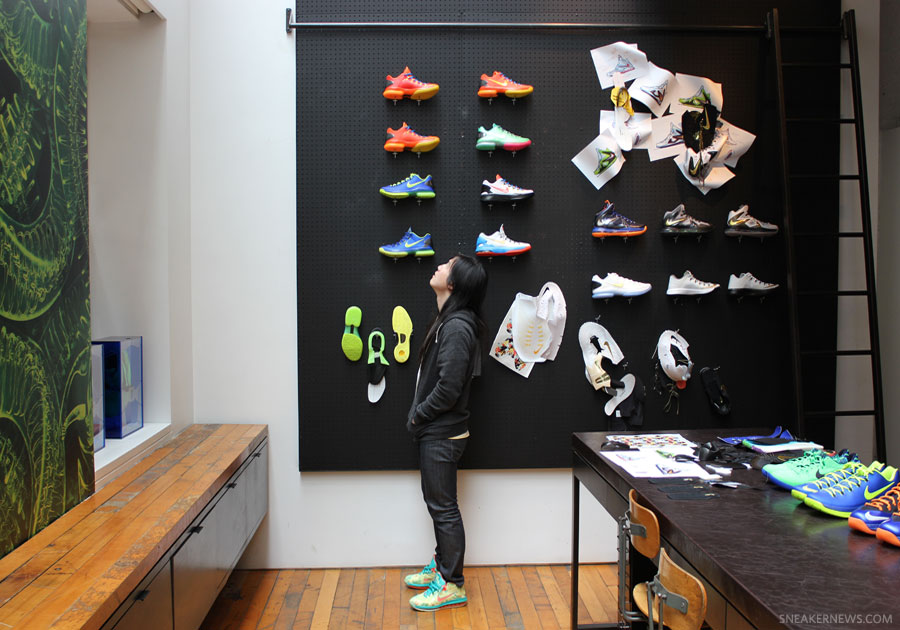
When Nike Basketball unveiled the initial Elite Series last spring, a lot of eyebrows were raised in response to the high pricetags, but upon examination of what you were getting for your money, it became clear that these shoes were packing some next-level performance features. We sat down with designers Leo Chang and Jason Petrie prior to the release of the first Elites to really delve into what made the shoes so “elite” and why the product justified the hefty pricepoints. As we learned, every tiny detail of the shoes are analyzed, considered and upgraded using materials and technologies that could never make it onto the in-season models because of their high cost. The Elite Series lets these designers loose to do all the things they’ve always wanted to do on a basketball shoe, and the end result is the pinnacle of what’s been achieved to date in the basketball footwear genre.
For the Elite Series 2.0, the basketball design team went back to the drawing board to start preparing their guys for the 2013 postseason, looking to not only upgrade the in-season models, but to push the new boundaries that were broken on the first batch even further. Leo Chang has put in serious work on all three of these new P.S. models, so he was the perfect guy to talk to when it came to answering all our questions about the Elite Series. We recently chatted with Leo about the ins and outs of the new shoes, as well as the story behind the Superhero collection, news on some upcoming colorways, thoughts on the Kobe injury and the future of the Nike Elite Series. Keep reading for the full interview and plenty more info on the Elite Series 2.0, which is set to start hitting retail this weekend.

CLICK BELOW TO READ THE INTERVIEW…
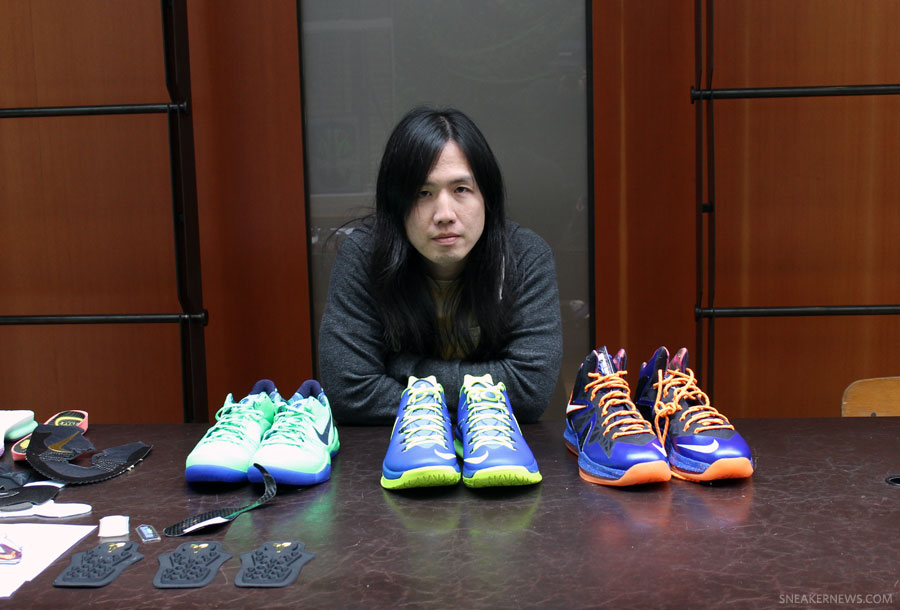
Sneaker News: Let’s pick up right where the first Elite Series left off. As you approached the 2.0s, what did you see as the biggest successes of the first round of Elites and what areas were you looking to improve on?
Leo Chang: The Elite Series was kinda like one of those moments where it was new space for us. Trying something different. Obviously, from a price standpoint it was kinda outrageous for a lot of people, so you’re crossing your fingers that people would even buy it, you know? From a performance standpoint, it was definitely a liberating thing to have the opportunity to just let us design and really do our thing. And from there, we’ve learned a ton.
We created that (first Elite Series) as sort of a concept car and a lot of those learnings, from a performance standpoint, little things here and there started implementing themselves into our regular inline products, which is pretty cool. That’s kinda how we see it too, like – a lot of these learnings don’t just die away once the products are gone. We learn so much from a manufacturing standpoint, from a performance standpoint, and even with colors and stuff.
SN: So by pushing the limits with what you guys are doing with the Elite stuff, you’re indirectly creating prototypes and technologies for future products outside the collection?
LC: Yeah, it may not be the next season, it may not be for a couple years or whatever, but it kinda helps us to discover new things. So that’s been the biggest learning curve for all of us – not just working on the Elite stuff, but just in general, like – hey, this worked great on the Elite, so let’s try a similar construction in the next Hyperdunk or whatever it might be. So that’s pretty cool.
This time around, this is definitely more of an evolution from where we were last year. A lot of times, you can get caught up in going tech-crazy for the sake of tech, and that’s not really what we want to do. We want to make sure that we’re purposeful and providing a real benefit, but we also want to evolve the technologies that we do use.
For example, last year, we had Kevlar as the Flywire base, and as you’ve seen over the summer, the latest Hyperdunk hit with the Dynamic Flywire and then the LeBron soon after had it too. Now, these (2.0) all have Dynamic Flywire, but with Kevlar in the core itself. The dynamic nature of the Flywire is the awesome support while it still allows the foot to move. But now, with the higher tensile strength of the Kevlar, it really just gives that additional lockdown.
Looking at the carbon fiber stuff, last year, it was a feat in itself to get this much onto a shoe and get it to work around the foot. This time around, we really tuned the carbon fiber to go from being so rigid to something more flexible. On the LeBron, its going everywhere, so that’s great for containment and stability in the shoe.
SN: So is this a completely different carbon fiber than you used on the original Elites?
LC: It’s a different process. There are areas molded with facets to really provide some extra geometry and rigidity, but then there are other areas, like the ankle, where you really want it to conform and bend a lot more. Going through the different iterations and processes of how to tune the carbon fiber was a big challenge on this series, especially with the LeBron. So little nuances like that were a huge challenge that a lot of people might not appreciate, but it’s there for a reason.

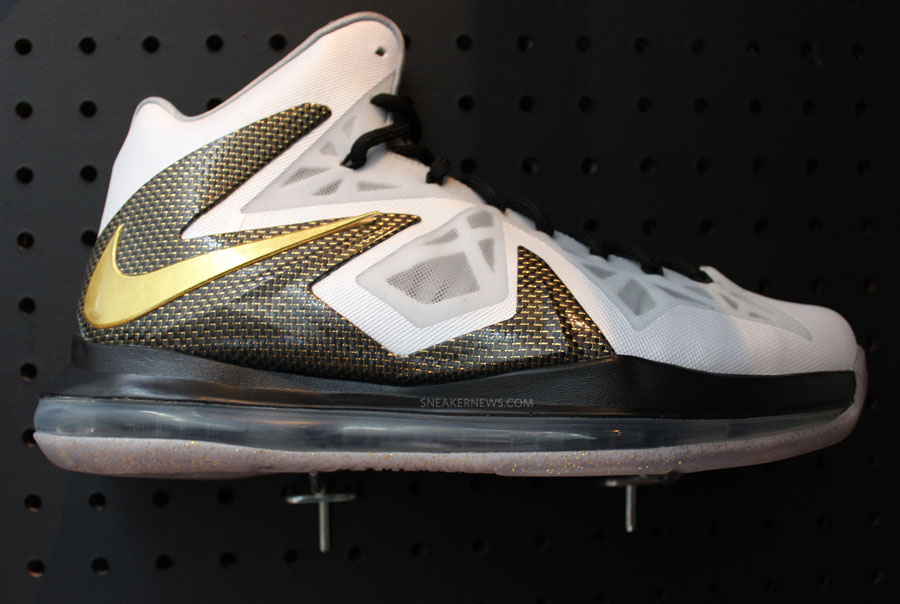
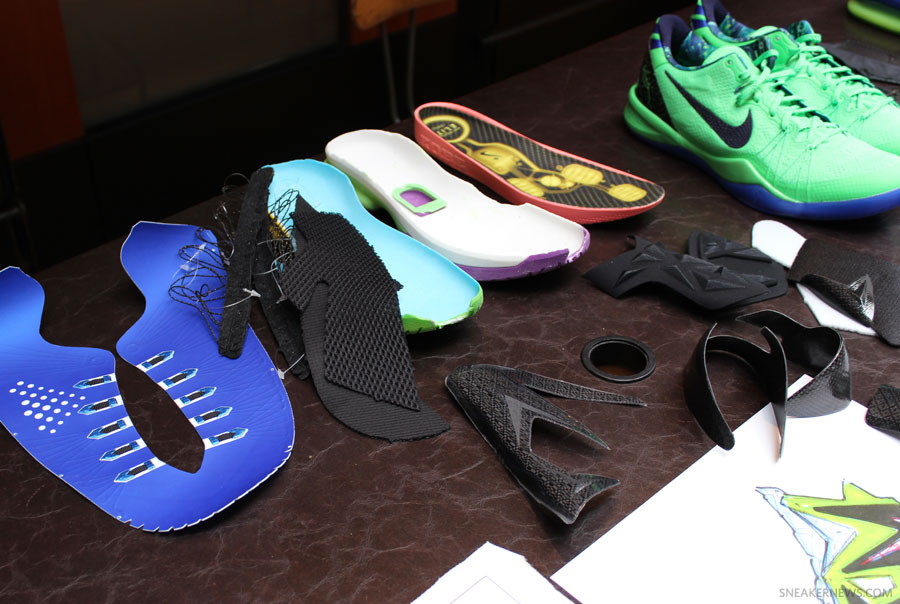
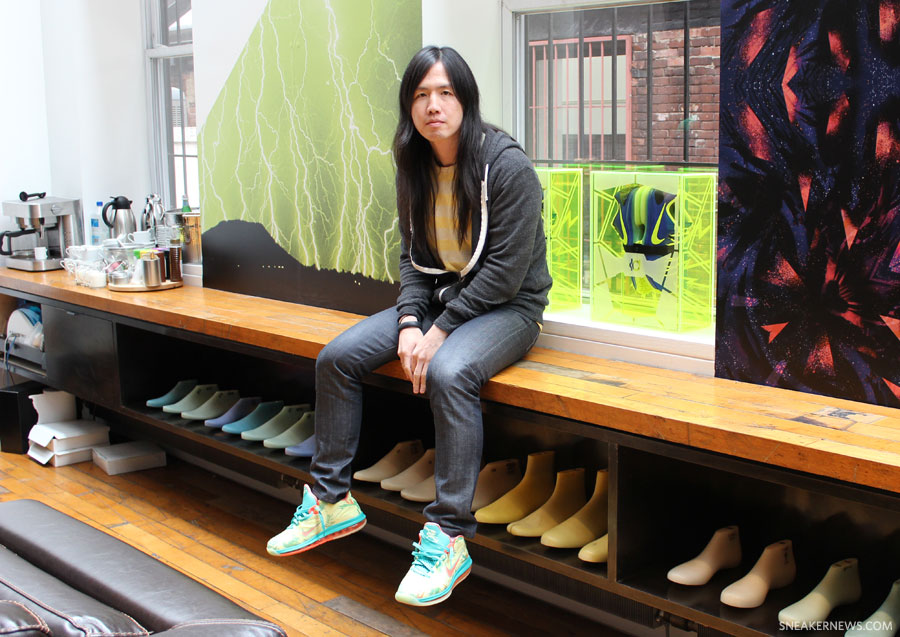
SN: Can you give us an idea of the timeline for the design of the original versions of these models in comparison to the Elite versions? Are the Elites created completely afterwards using the in-season model to build off of, or are they both being created alongside each other from the beginning?
LC: Definitely alongside. There’s a lot of things we wish we could do in the regular shoe that we just can’t afford to do, and that’s why we just save it for the Elite Series. We definitely develop alongside and that’s another learning coming off the last Elite Series.
SN: Is that how it went for those too, where they were designed simultaneously with the in-season models?
LC: No, not necessarily. Last year’s came a little bit after the products were already done. With these, we went in knowing that we could afford to do certain things on the Elite Series that we can’t do on the regular. The Elite Series is like “the dream!”
SN: Yeah, for you guys, it must be like a dream come true, because the ties come off your hands to do all the things that would normally make the pricepoints too high.
LC: Yeah, for example, on the LeBron X, Jason (Petrie) has the under-support reinforcement underlays underneath the skin on this kinda Fuse upper. And he had in his mind as we got into the Elite Series – I wanna turn those pieces into carbon fiber to add even more protection and stability to that. So those are things, that when he was developing the X, he knew he wanted to do things that he couldn’t do, but then was able to just take them and do them on the Elite.
Even when I was working with KD on the V, the midsole had that dynamic foam heel counter that integrated into the midsole and that was kind of a new way of looking at a dynamic counter that moved with the foot. So for the Elite Series, I was thinking – what if that sorta transformed into kind of a bucket race car seat that just hugged your foot like no other. So I always kinda had it in mind that I was gonna turn that into carbon fiber and really just allow it to hug the heel.

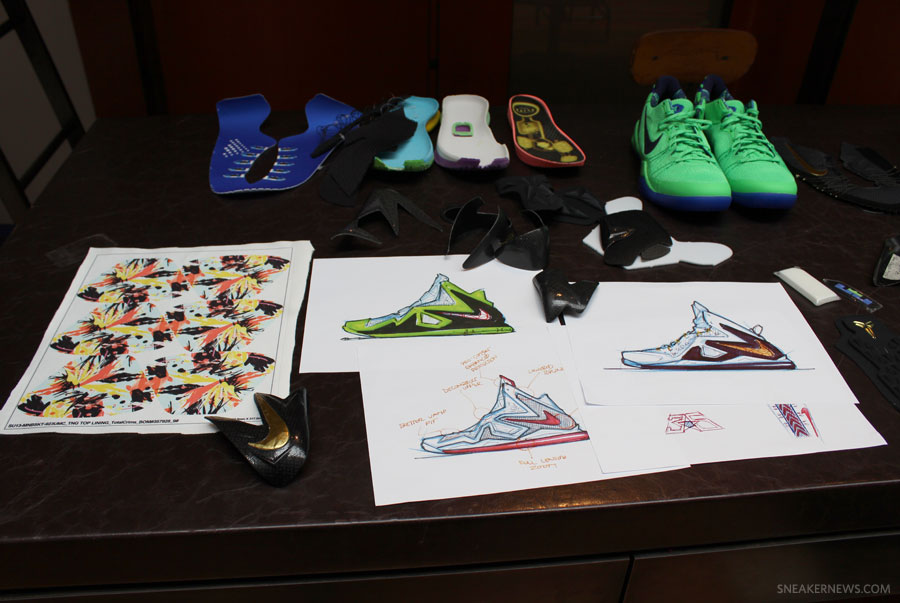
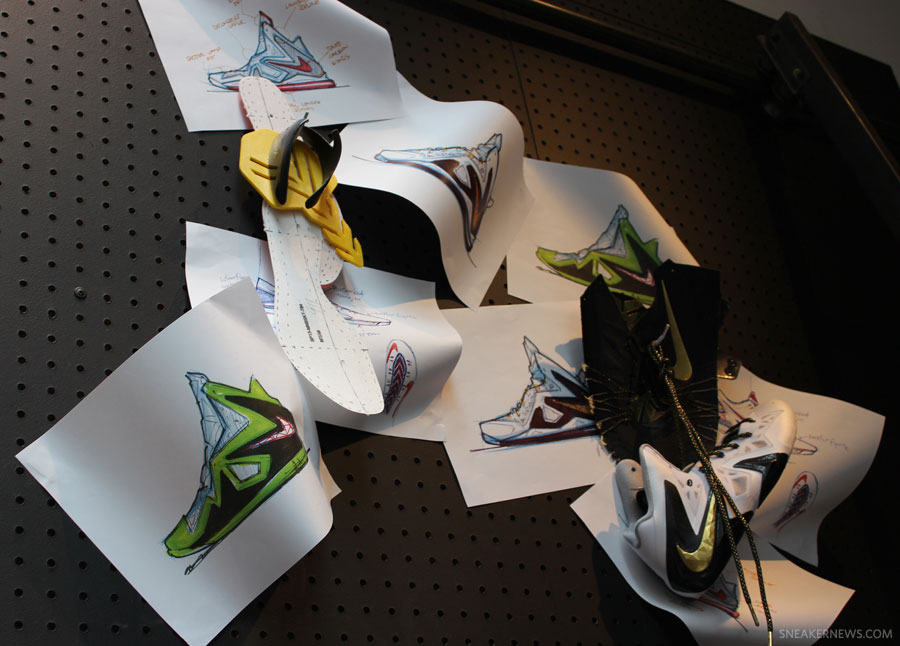
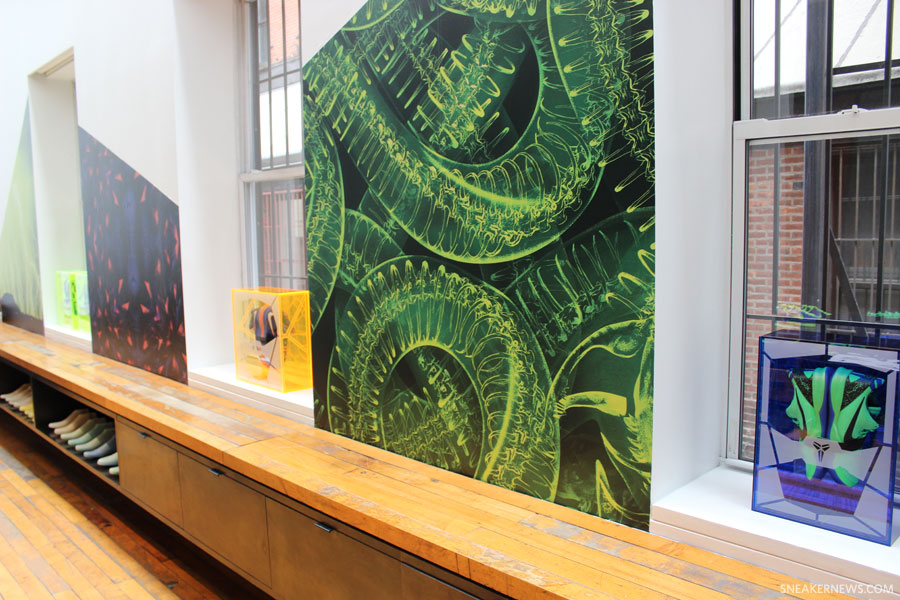
SN: With the 2.0 Series, including a KD shoe seemed like a no-brainer, but it replaced the Hyperdunk, which was worn during last year’s playoffs by a number of Nike’s non-signature players. Is this a underlying statement that only the elite players get an Elite shoe and will there be any kind of new postseason model for the other playoff-bound players on Nike’s roster this year?
LC: There isn’t a general shoe like the Hyperdunk for the rest of the guys this year. You know, we don’t wanna piss anyone off, but there is a reason why these guys have signature shoes. They’ve earned it. Again, it’s taking our best stuff and making it even better. That’s where we started last year and we feel like these guys are truly in that space right now. Last year, we also wanted to create that range that meets the needs of all different kinds of basketball players.
The LeBron is in that ultimate protective zone and has amazing cushioning for guys that need a little more protection. For the guys in the middle of that – where the Hyperdunk used to be, the versatility position – I think a lot of people can wear the KD Elite. And then for the guys that really wanna go minimal and lightweight, you’ve got the Kobe. So we still cover the range I think.
SN: Sticking with that sorta comparison of the three shoes – there are 3 different cushioning systems on the three Elite Series models – 360 Zoom on the LeBron, caged Zoom on the KD and the Zoom/Phylon combo for Kobe. Can you give us the breakdown of why each one is the right fit for each player?
LC: LeBron is the strongest and the fastest player in the league arguably, and the thing he always tells us and that we sorta have as the mantra for LeBron is – “Protect me from myself. Lock me down so I can fly.” So, with the Zoom (on the LeBron X), the cushioning is awesome.
It’s like springs and it’s just amazing. He needs that level of all over underfoot protection. For a guy who has that much power, he can really benefit from the all over responsive Zoom and really use it to leap and be more responsive on toe-off. And with the containment of the upper – he’s 270 lbs., you know? When he’s blasting on a hard cut, imagine the force that’s on the sidewall of that. So that helps to just really contain him.
With the Zoom in the KD Elite, there was Max Air tooling on the (in-season) V, and when I asked him what he wanted for the playoffs, he said he wanted to go lower on the collar height and lower on the midsole. And part of the superhero story was – if you had a superpower, what would it be? And he was like “I wanna be as fast as lightning!” So I was like, cool, we need to make you faster then. So getting lower, getting the Zoom and really providing some stability with the Zoom with the cage around it that integrates into the shank. And then it has the forefoot Zoom as well, in addition to the heel, but it’s not overdone and too much for that middle zone, for that versatility.
And then with Kobe, using the System and the fact that you can pull out these inserts and swap them out, it’s pretty cool, and Kobe loves the Lunarlon version. But this time around, we were like, you know what, it’s the playoffs, you’ll be beat up. In general, a lot these guys just want to protect themselves even more. They’re fatigued out, they’re coming off injuries. That’s when they need that the most, so we added a little more cushioning in the heel, but we put that Cushlon in the forefoot so you still get that really nice flexibility and range of motion that you get out of the Kobe. And the Kobe is great because it’s like that ultimate symbiotic kinda connection from foot to shoe. You get that range with almost a Free-esque feel.

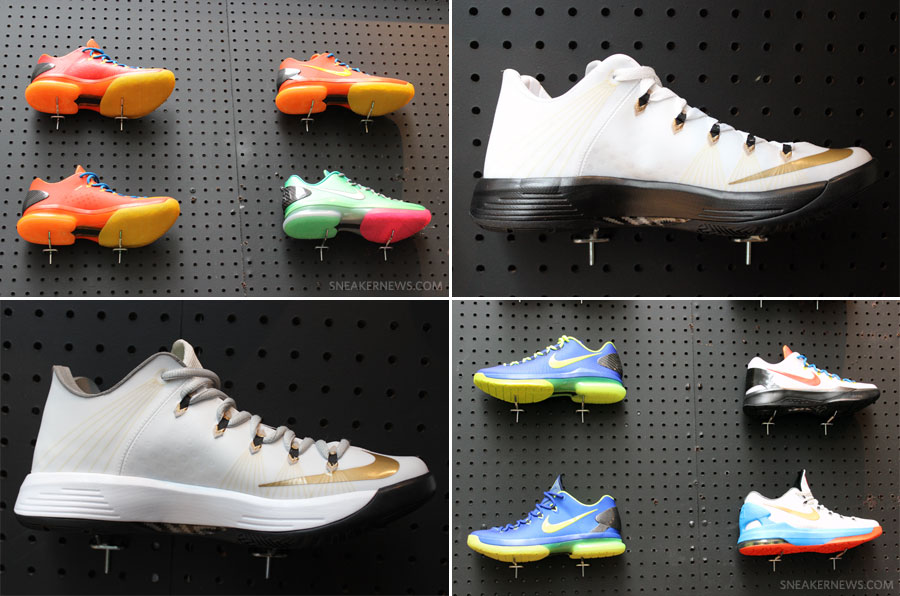
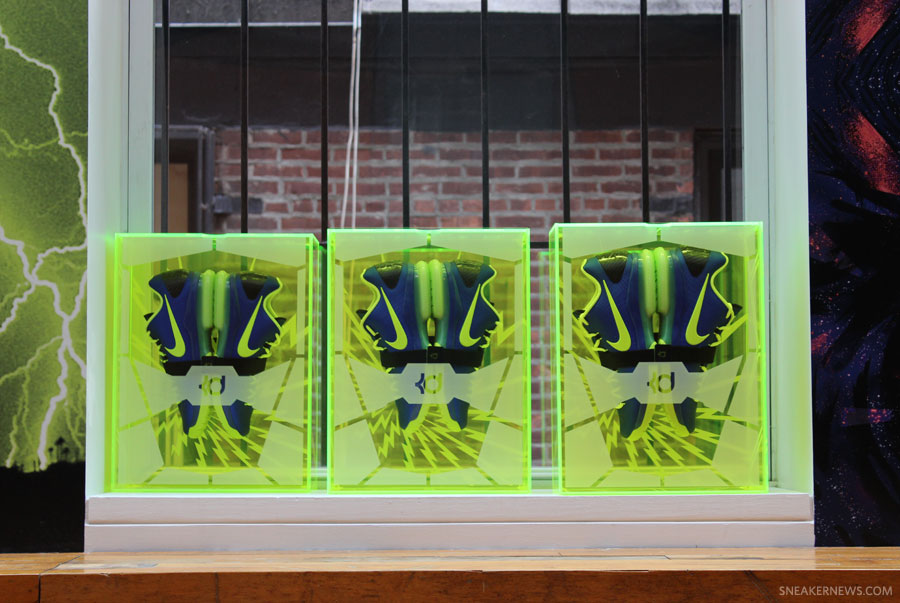
SN: At a quick glance, the KD Elite shoe is a pretty drastic transition from his in-season shoe, while the visible changes on the LeBron and Kobe models are a bit more subtle. Can you give us some insight into why one shoe changed so dramatically compared to the other two? Does all that come directly from cues from the athletes?
LC: KD is one of those guys that really embodies versatility. His game is so vast from the way he plays to what he can wear. On the V, he was like “I wanna go high again”, and I was like, okay lets do it! Knowing that he can play in the low come playoff time, he wanted to go low and switch it up. So with him, you get a little more range to play with.
With the Kobe, we were developing the Kobe 8 on a Spring timeline and the Elites are for Summer, so there’s already so much innovation going on with the Spring stuff, so we’re like, what are the extra little things we can do. When Eric Avar moves on the 8, we’ve gotta be ready to move on the Elite, because we’re working kind of simultaneously.
SN: Is Eric Avar involved at all in the design of the Elite version of the Kobe?
LC: A little bit. On this one, he was definitely focused on getting it right. With this much mesh, it was a challenge to get the right stability without losing that sock-like feel. That was a huge challenge and his team was purely focused on nailing that. Then I came in to tune it up a little more with that playoff mentality and that race car feel where you wanna get locked in a little tighter and not have any kind of slack at all. That’s where adding in that Flywire and the carbon counter and all that stuff came into play.
SN: Carbon fiber is definitely the most obvious common design thread on on all three models. Was it intentional to make it a uniform feature throughout the collection?
LC: Yeah, as a designer, we love to use it because it’s such a cool material. It’s so light and it’s also really strong. And it looks amazing too. It’s just premium and rich and when you get real carbon fiber, it just has amazing dimension. It just takes it to another level.

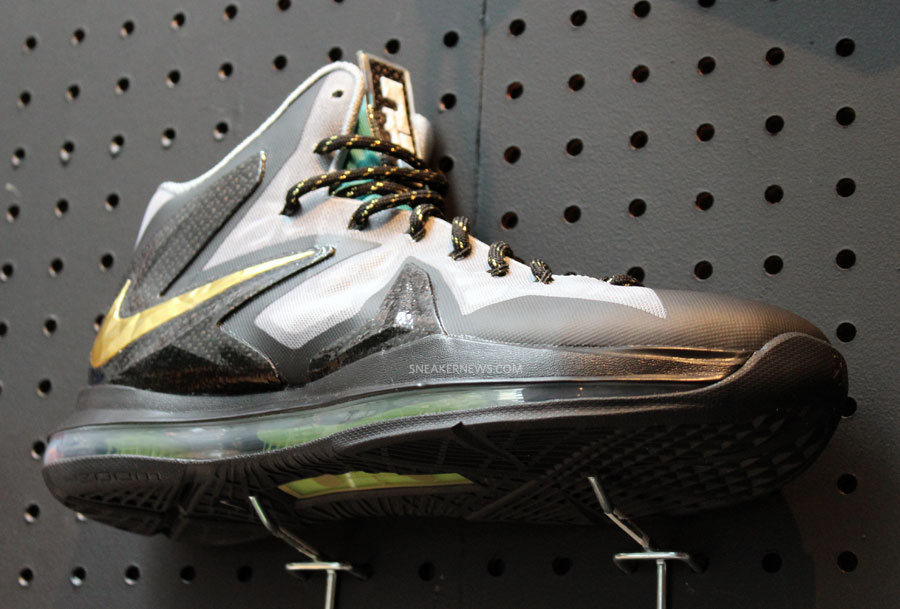
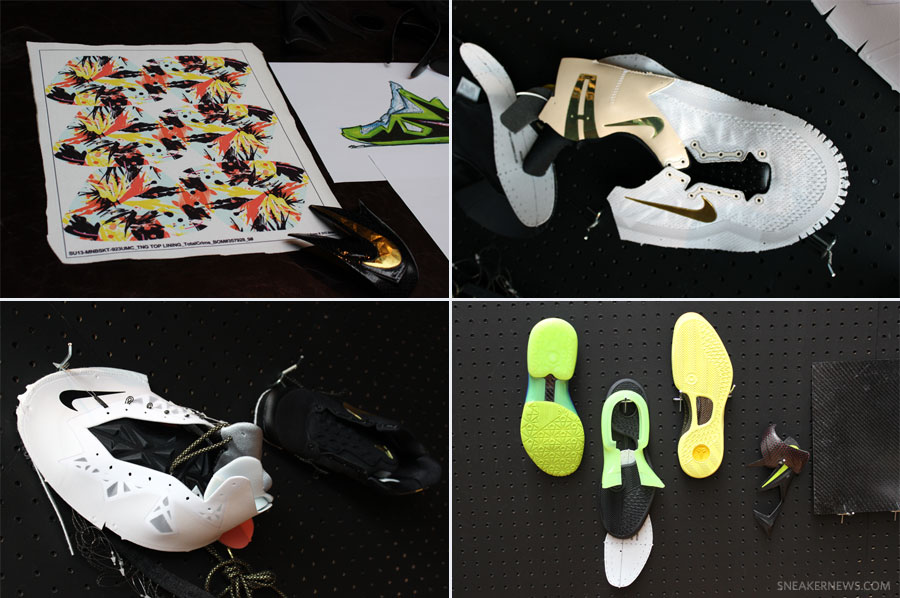
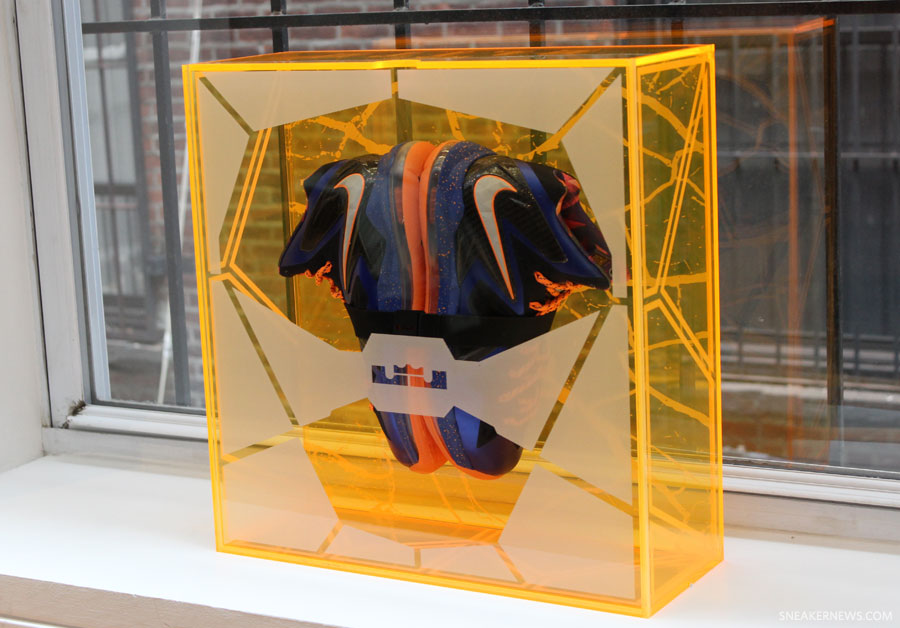
SN: The 2.0s were unveiled using the Superhero story and colorways. Was this theme something that was done by the color/graphics team after the fact, or was the concept of these athletes being superhuman something that actually went into the structural design process?
LC: Yeah it went into both. It was something that when the higher level design direction came to us and said they wanted to talk about superheroes, then our team had to figure out what that meant for our guys. We didn’t want to just do another comic book superhero thing. That’s kinda been done a million times and we feel like these guys are seen as superheroes in our consumer’s eyes and basketball fans’ eyes, because they do some pretty incredible stuff. That’s why they’ve earned the right to have these signature shoes and from there, we just had some fun with it like, if they had superpowers, what would they be?
We talked about LeBron. He’s unstoppable. He’s indestructible. Everyone tries to take him out, but he always gets right back up. He’s a freight train. You can’t stop the guy. So it all really started with the Diamond Collection on the X. We were looking at what was the strongest diamond out there and it was the unbreakable diamond, the carbonado. And people were saying that it’s not even from Earth, that it was from a supernova or something like that. It’s the hardest diamond out there. You need another carbonado to cut a carbonado. So we started thinking about that and that obviously ties directly into the carbon fiber use, the sharp edges, even the way the diamond shapes are embedded into the design. Then the layering of the graphics and the color come into that as well.
With KD, he said he wanted to be fast as lightning, so his is lightning speed. He loves the Volt color and that’s super electric, so that was represented there. Then with Kobe, obviously, his products are fast and quick, but we wanted to bring some other dimensions to him as the character. So for this one, we talked about “Mambavision” and his ability to dissect his opponents and see through them and see their next steps before they do.
He’s the ultimate in really breaking down things and seeing the game in a different way, and that’s what makes him so special. Even on the product level, he’s so in tune with things. His vision is amazing and so we wanted to bring that out, so the graphic is that x-ray snake pattern. So yeah, just playing up what if they were superheroes and having some fun with it.
SN: Even though the Elite Series is designed with the postseason in mind, we’ve already seen all three players break them out early in the last weeks of the season. Is there any reason that they debuted prior to the start of the playoffs?
LC: I think it was just because it was so close and those guys have each been just itching to get into them. It’s funny, with me working closely with KD’s stuff and his sports marketing guy. He was like – KD won’t let up man. He just keeps hitting me up like, “When am I gonna get those Elites? When am I gonna get those Elites? I just saw Kobe wearin the Elites. When am I gonna wear those Elites?!” So, those guys just wanna get into them! They’re fired up.
After the Portland vs. OKC game, which was the first time KD busted his out, I was standing next to Lynn Merritt, LeBron’s guy. LeBron had just played a game and he was wearing his and Lynn texted him like – I saw you busted out those Elites. How’d they feel? And LeBron was like “They felt like a dream!” So he was fired up too!
SN: That’s gotta make your day. How do you guys feel when you get that kind of feedback from the players themselves?
LC: It’s awesome. It just makes it more rewarding. Obviously, it’s not all about the shoes I guess, but when Kobe wore them against Portland and he had 28 points in the first half and then dropping 47 in the end and going against Damian Lillard. That was just special, you know? It’s really exciting when good things happen. These guys are really happy about it and then they want to wear them again the next game.

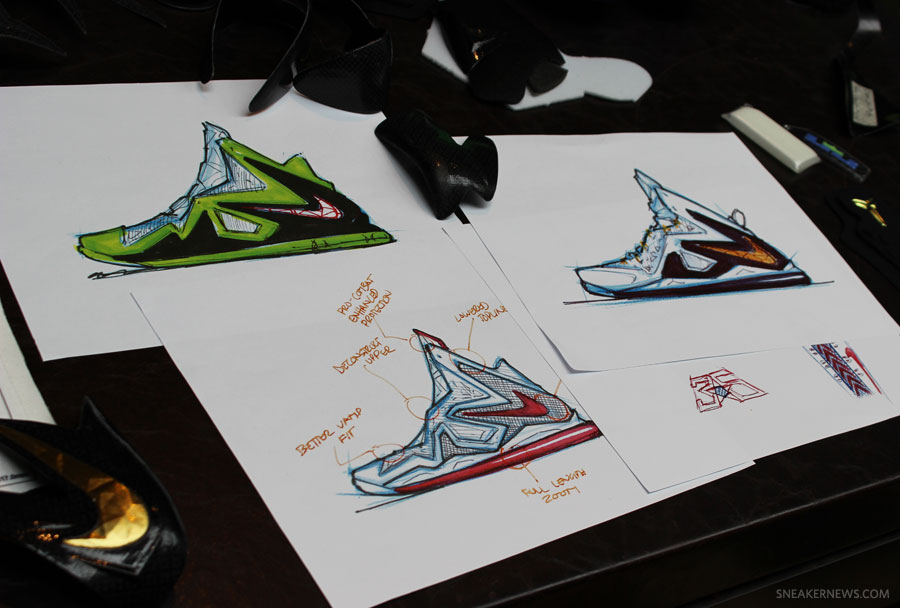
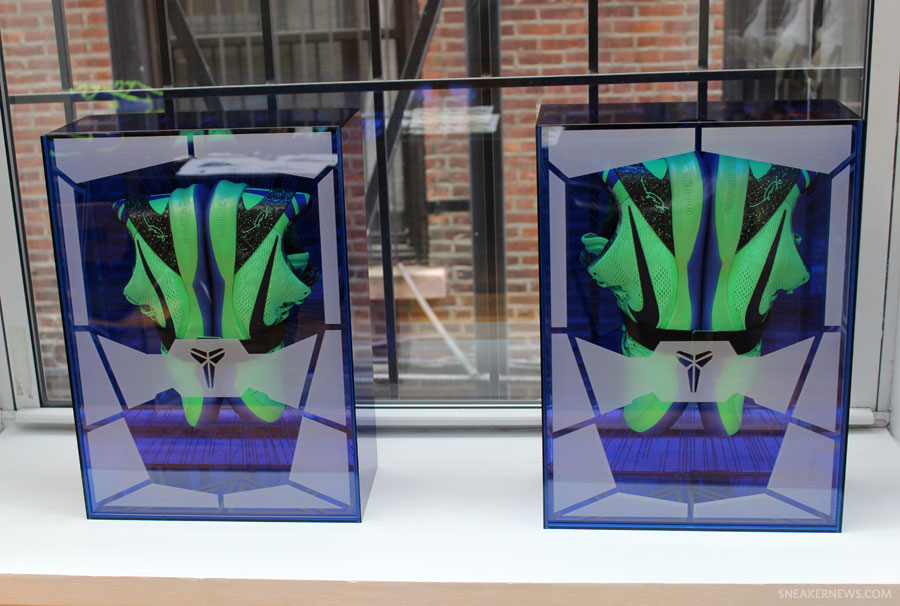
SN: The Kobe injury is obviously a tough blow to the Elite Series since the Kobe 8 won’t get its proper on-court spotlight, but before it happened, the Lakers were already in jeopardy of missing the playoffs. It seems a safe bet that these three players will be in the post season each year, but its still a gamble. Is it a no-brainer to create postseason shoes for them no matter what?
LC: I think it’s a no-brainer. Personally, I think regardless of whether Kobe’s in the playoffs or not, he deserves it. He’s got five rings. He’s about the postseason.
SN: How much do you think this current situation with the Kobe injury will impact the eventual success and legacy of the shoe, if at all?
LC: I don’t know. That’s not for me to determine. It’s up to the fans and whether they want to buy it, but I just think he deserves it. He’s a legend. It doesn’t matter what he does. He could retire today – I hope he won’t – but he could retire today and we’ll probably still honor that, because he’s that good.
SN: Just to get into colorways a little bit – not many color variations were released for the first Elite Series, but we’ve been seeing all kinds of versions pop up for the 2.0s. Are most of the pairs we’ve been seeing limited to PEs or will there be some more options for consumers this time around at retail?
LC: Yeah, last year was kind of a purposeful way to cleanse the palette a little but. It started with us going crazy with some full flood colors all over our shoes and it was exciting to see basketball shoes in general getting more energy. But we wanted to zig a little bit and just do premium neutral (for original Elites) – you know, black and white and gold, and just premium. It was kinda nice and refreshing, I thought.
This time around, we still wanted to be serious, but we also wanted to have some fun and tell these Superhero kinda stories. So this is obviously one collection, and then we’ll do four colorways of the KD, four on the LeBron and two Kobes. You’ve seen the crimson LeBrons – those are pretty fresh. There’s the teal one’s that he actually wore. Those are nice too – a little bit Miami inspired, but more about the cultural flavor of Miami.
Then with the KD, we’re doing the bright orange colorway. We’re doing the white ones that he wore the other day. Then the white/gold and the one that’s almost a mint color with the pink and silver hits. That was one where I like to sit down with KD and his friends around him, and when the time is right, color up some shoes that only they get. Do some one-offs and have some fun. Because they were so excited about it like – yeah, these are the colors! And I’m like, alright and just bust out my laptop and get started.
SN: It’s good to be a part of KD’s crew, huh?
LC: Yeah, exactly! That was fun, and you’ll see a ton of PE’s on court from these guys.
SN: Without disclosing any top secret details, what can we expect from the future of the Elite Series? What’s left to do to a basketball shoe that hasn’t been done and how much room is there to still advance the performance of these shoes? Can they still keep getting significantly better?
LC: Without giving away too much, I think it’s more about focusing on each individual guy’s performance style and story, and what they really want and less about just flaunting carbon fiber all over everything. I think we’ve done that and obviously it was a benefit, but we wanna just check ourselves and make sure that we’re not just throwing on stuff just for the sake of putting it on. Like if there’s a cool new material, but it’s really not providing anything better, we’re not gonna put it on just because it costs more. It really just comes down to – what’s the performance need at the time for each specific guy. And you’re gonna see these guys pick their own lanes really and own that space. So that’s gonna require some different applications, constructions and technologies that really are purposeful to each guy.

Much thanks to Leo and Nike for taking the time to answer all our questions. Keep an eye out for the first wave of Elite Series 2.0 colorways releasing this weekend.
